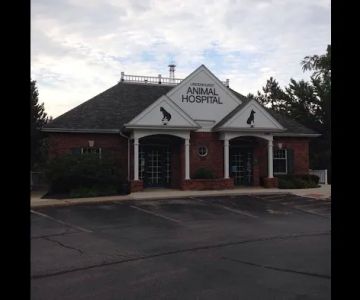What Degree Do You Need to Be a Livestock Veterinarian?
Becoming a livestock veterinarian is a highly specialized career path that combines a deep understanding of animal health with the challenges of agricultural and livestock management. If you’re considering a career as a livestock vet, you might be wondering what educational qualifications and skills are necessary. The path to becoming a licensed livestock veterinarian involves a combination of formal education, practical experience, and sometimes even certification or specialization, depending on the region and specific area of focus. In this article, we’ll explore the steps involved in becoming a livestock veterinarian and what degree you need to pursue this rewarding and challenging profession.
1. The Basics of a Livestock Veterinarian
Livestock veterinarians play a critical role in the health and well-being of farm animals. These professionals work with animals such as cattle, sheep, pigs, and poultry, focusing on preventing, diagnosing, and treating diseases. They may also be involved in the breeding of livestock, ensuring that animals are well-nourished, and providing advice on animal husbandry practices. The job requires strong technical knowledge in veterinary science, as well as a good understanding of agricultural practices and the farming industry.
Livestock veterinarians work in a variety of settings, from private practices to government agencies or large agricultural firms. Some veterinarians may even choose to work in research or policy development to improve animal health and agriculture practices. Understanding the scope of the work is essential to pursuing the correct educational pathway and certifications.
2. The Educational Path to Becoming a Livestock Veterinarian
To become a livestock veterinarian, you’ll need to complete a comprehensive education in veterinary medicine, which typically includes undergraduate studies, veterinary school, and clinical experience. Let’s break down these steps in more detail:
2.1 Complete a Bachelor’s Degree
The first step in becoming a livestock veterinarian is earning a bachelor’s degree. Although there’s no specific major required, it is important to choose courses that will prepare you for veterinary school. Most future veterinarians choose majors in biological sciences such as biology, chemistry, or animal science, as these courses will provide the foundational knowledge needed for veterinary studies. It’s important to maintain a strong academic record during your undergraduate years to meet the admissions requirements for veterinary school.
In addition to coursework, gaining practical experience through internships or volunteer work with animals is highly recommended. Many veterinary schools require applicants to have hands-on experience in animal care, especially with livestock. This experience can be gained at farms, animal shelters, or through internships with other veterinarians.
2.2 Attend Veterinary School
After earning your bachelor’s degree, the next step is to attend a veterinary school accredited by the American Veterinary Medical Association (AVMA). Veterinary school typically takes four years to complete. During this time, you will receive in-depth training in various fields of veterinary medicine, including anatomy, pharmacology, pathology, microbiology, and clinical skills.
As a student in veterinary school, you will be trained to handle a wide range of animals and medical conditions. While all veterinarians receive similar foundational training, some schools may offer specialized programs or internships that focus on livestock care. Choosing a veterinary school with a strong focus on livestock or agricultural medicine can be beneficial if you’re planning on specializing in that area.
2.3 Gain Practical Experience
Hands-on experience is essential to becoming a skilled livestock veterinarian. During your veterinary school education, you will be required to complete clinical rotations where you work directly with animals under the supervision of experienced veterinarians. This is where you’ll gain real-world experience in diagnosing and treating livestock diseases, performing surgeries, and learning the intricacies of managing large animals in agricultural settings.
It’s also beneficial to seek out additional internships, externships, or job opportunities in farms or ranches that have a large number of livestock. These experiences can help you gain valuable insights into the daily responsibilities of a livestock veterinarian and allow you to network with professionals in the field.
3. Licensing and Certification
After completing veterinary school, you must pass the North American Veterinary Licensing Examination (NAVLE) to practice as a licensed veterinarian in the United States. This exam assesses your knowledge and clinical skills across various species, including livestock. In addition to the NAVLE, some states may require additional exams or background checks for you to obtain a veterinary license in that state.
In addition to the basic veterinary license, livestock veterinarians may choose to pursue certification in specialized fields such as large animal surgery, internal medicine, or herd management. Certification from professional organizations, like the American Board of Veterinary Practitioners (ABVP), can improve job prospects and demonstrate your expertise in livestock care.
4. Specialized Knowledge in Livestock Health
Livestock veterinarians must possess specialized knowledge in various areas, such as animal husbandry, nutrition, and disease prevention. As a livestock veterinarian, you may be required to manage a wide range of conditions, from common infectious diseases to complex reproductive problems and surgery. The nature of livestock medicine is unique due to the large scale of animals and the agricultural environment in which they live. This requires an in-depth understanding of herd management, biosecurity measures, and farming practices.
Additionally, livestock veterinarians may be involved in advising farmers on how to improve the productivity and health of their animals, offering insights on breeding programs, feed management, and animal welfare. Having knowledge of these specialized areas is crucial for success in the field and allows veterinarians to become trusted experts in agricultural settings.
5. Continuing Education and Career Development
Like most medical professions, veterinary medicine requires lifelong learning. Livestock veterinarians must stay updated on the latest advances in animal medicine, technology, and agricultural practices. Many veterinarians participate in continuing education through workshops, conferences, and courses. Staying current with new treatments, research, and innovations in livestock care can improve patient outcomes and ensure that veterinarians are providing the best possible care to their animal patients.
In addition to continuing education, livestock veterinarians may also take on leadership roles within veterinary organizations, research initiatives, or government agencies. Many experienced veterinarians choose to specialize even further or open their own practices to serve the growing needs of the agricultural industry.
SEO Title: What Degree Do You Need to Be a Livestock Veterinarian? SEO Keywords: livestock veterinarian, veterinary degree, livestock health, becoming a veterinarian, veterinary school, animal care SEO Description: Learn about the education, training, and certifications required to become a livestock veterinarian. Discover the degrees and qualifications you need to pursue a career in livestock care.










